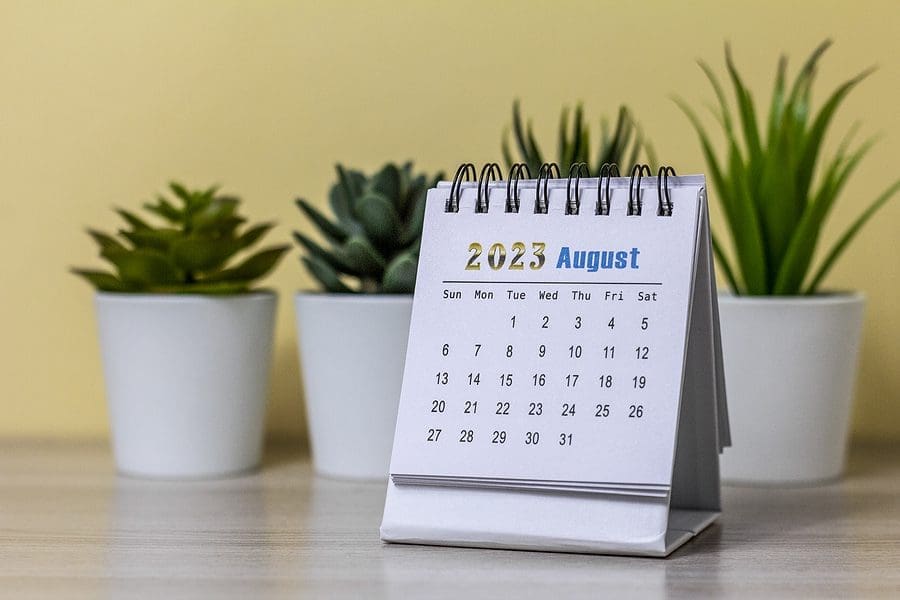JONES LAW GROUPYour Lawyers for Life! Personal Injury Law Firm in St. Petersburg

Car accidents are a common occurrence in Florida, and determining who is at fault for the accident is a critical step in the process of seeking compensation for damages and injuries. Florida is a no-fault state. This means that each driver’s insurance company is responsible for covering their damages and medical expenses. It doesn’t matter […]
Call our personal injury law office directly at (727) 512-9847
At Jones Law Group in St. Petersburg, FL, we would like to hear from you. Contact us for a free personal injury case consultation.
Call our personal injury law office at (727) 512-9847
Get educated on the Florida's personal injury laws and more.
Car accidents are a common occurrence in Florida, and determining who is at fault for the accident is a critical step in the process of seeking compensation for damages and injuries. Florida is a no-fault state. This means that each driver’s insurance company is responsible for covering their damages and medical expenses. It doesn’t matter who was to blame. However, fault can still play a role in determining the compensation each party may receive. In this article, we’ll explore how fault is determined in car accidents in Florida.
An attorney with the Jones Law Group will be ready to help if you’ve suffered an injury in a car accident caused by someone else’s negligence. We have years of experience in these kinds of cases, and we’ve helped our clients obtain millions of dollars in damages. We’re standing by to work to ensure you get exactly what you deserve.
If you would like to schedule a free evaluation of your case, please don’t hesitate to use our online contact form or give us a call at (727) 571-1333.
Florida is one of the 12 states in the US that has a no-fault auto insurance system. This means that each driver’s insurance company pays for their medical expenses and damages after a car accident. Again, this is regardless of who was to blame. The idea behind this system is to streamline the claims process and reduce the number of lawsuits that arise from car accidents.
All Florida drivers have to carry Personal Injury Protection (PIP) insurance. This insurance covers medical expenses, lost wages, and other related expenses up to a certain amount. However, PIP insurance only covers a portion of the expenses. If the injuries or damages exceed the policy limit, the at-fault party may be held responsible for the additional expenses.
Although Florida is a no-fault state, fault can still play a role in determining who is responsible for the accident and the compensation each party may receive. If one party is found to be at fault for the accident, they may be responsible for paying for the other party’s medical expenses and other damages.
After a car accident, insurance adjusters will investigate the accident to determine who is at fault. They will review the police report, talk to witnesses, and assess the vehicle damage. In some cases, they may also use accident reconstruction specialists to help determine the cause of the accident.
If you’re involved in a car wreck, it’s essential to document the accident as thoroughly as possible. Take pictures of the damage to the vehicles, get contact information from witnesses, and keep all of your medical bills and other related expenses. This information will be helpful when your attorney is investigating the accident.
But your lawyer will look for other evidence as well during their investigation. For example, there might have been a surveillance camera located near the accident scene. It could have footage that shows how the wreck took place. If it looks like the at-fault driver was texting while driving, your attorney can request their phone records.
A skilled attorney will also have relationships with expert witnesses who can testify on your behalf. An accident reconstruction expert, for example, can show a jury how a collision occurred. They can explain the details of the accident in an easy-to-understand manner.
In some cases, the insurance company and the other driver’s attorney may not agree on who is at fault for the accident. In these cases, a judge will make the final determination. The judge will review all of the evidence and decide who is responsible.
Florida follows a legal principle known as “comparative negligence.” This means that even if you were partly to blame for the wreck, there’s a chance you could still obtain compensation. But that compensation will decrease depending on the percentage of fault you’re assigned.
For example, if an investigation finds that you’re 30% at fault for the accident, your compensation may be reduced by 30%. So, if you were seeking $10,000 in damages, you may only be able to recover $7,000.
If the investigation shows that you’re 0% at fault for the accident, you may be entitled to compensation for all your damages. However, the compensation you receive will depend on the specifics of your case, including the severity of your injuries and the damage to your vehicle.
This is yet another reason why you need the help of an attorney. You may be convinced you didn’t contribute to the accident in any way. But if you don’t have solid proof, getting the money you have coming will be challenging. A seasoned lawyer will work to collect that proof.
If you’re involved in a car accident in Florida, it’s going to be essential that you contact an experienced car accident attorney to discuss how fault may affect your case. An attorney can help you deal with all the complexities associated with this kind of case. They can also work to ensure you receive the compensation you deserve.
An attorney can also help you gather the necessary evidence to support your case, negotiate with insurance companies on your behalf, and represent you in court if necessary.
In addition, an attorney can help you understand the nuances of Florida’s no-fault system and how it may impact your case. For example, they can help you determine whether you have exceeded your PIP policy limit and whether you may be able to recover additional damages from the at-fault party.
Contact the Jones Law Group online or call (727) 571-1333 for a free consultation to learn more about what we can do for you.

By: Heath C. Murphy + – Personal Injury I have written a lot of articles about motorcycle safety and articles directed to bikers. This article is for drivers of the cars and trucks. The drivers of cars and trucks in St. Petersburg, Clearwater and Tampa must be more cognizant of motorcycles. It is especially important […]

Millions of people across the country suffer accidental injuries each year. Many of these accidents occur due to someone else’s negligence, and many victims choose to file a personal injury lawsuit to seek justice. In almost every instance, the victim wants to know how long it will take them to obtain compensation. This is probably […]

Florida is home to some of the world’s most popular theme parks, as well as beautiful beaches and tropical weather. With so many vacationers, some Florida cities have become a popular destination for bed bugs as well. Bed bugs are tiny parasitic insects that are excellent at hiding, and can easily squeeze into luggage, clothing, […]

Many accidents involve some degree of culpability by both parties. For instance, consider the case where a driver stops at a stop sign, but misjudges the speed of an oncoming car before entering its path. The oncoming car is speeding which deserves some of the blame for the accident, right? What is the result for […]

Truck drivers are notorious for causing horrible accidents that can have catastrophic consequences. Even if drivers or occupants in passenger vehicles are fortunate enough to survive the wreck, they will often suffer injuries that can require years of recovery and result in astronomical medical expenses. In far too many instances, these victims will never fully […]

Long story short, no, it’s not okay. If you’ve been hurt in a car accident, you not only need to get medical help right away, you also need to follow the doctor’s advice. In fact, one of the biggest mistakes you could make would be not to go to the hospital after a car accident. […]
Speak with us before time runs out! In Florida, you have a limited window to file a personal injury case, so speak to an Attorney today.
Call our personal injury law office directly at (727) 512-9847
Jones Law Group is a dedicated personal injury lawyer in St. Petersburg, FL, serving the Tampa Bay area since 2006. Our experienced attorneys specialize in car accidents, slip and fall cases, employment law disputes, construction law issues, and overtime wage claims, fighting for maximum compensation on a contingency fee basis. Contact us for a free consultation to discuss your case.
Call our personal injury law office at (727) 512-9847
© Copyright 2006–2025 Jones Law Group Attorneys at Law. All rights reserved. Privacy Policy Terms of Use
Attorney Advertising.
The information on this website is for general information purposes only. Nothing on this site should be taken as legal advice for any individual case or situation. This information is not intended to create, and receipt or viewing does not constitute, an attorney-client relationship. Past results do not guarantee similar outcomes.
Are you injured or wronged and interested in a consultation? Fill out the form for a free consultation with us.